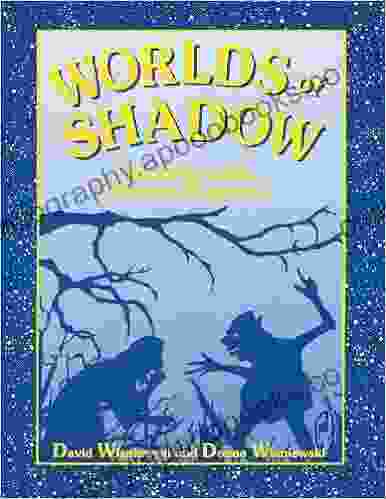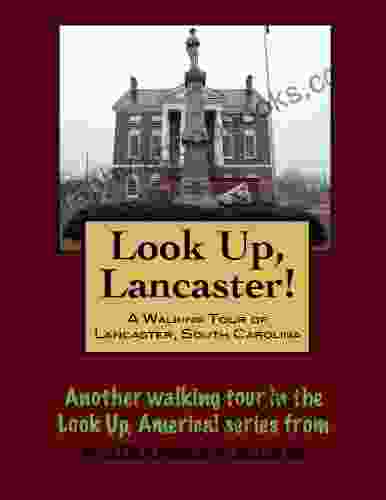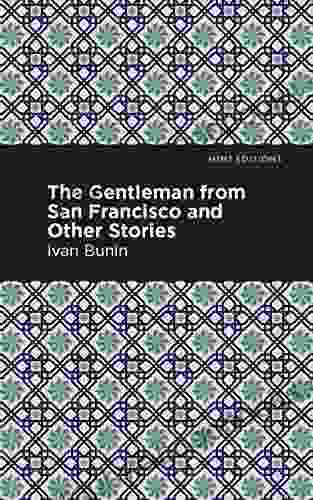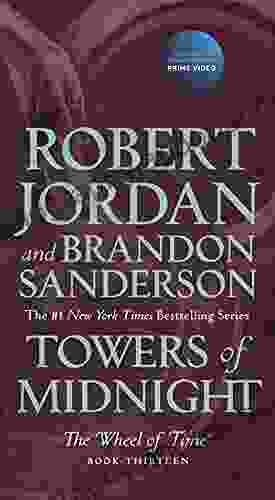Lotteries in Colonial America

A Glimpse into the Past
Lotteries have been a part of American culture since the colonial era. The first lottery in the United States was held in Jamestown, Virginia in 1612. Lotteries were used to fund a variety of public projects, including the construction of schools, churches, and roads. They were also used to support charitable causes, such as providing aid to the poor and sick.
5 out of 5
| Language | : | English |
| File size | : | 2206 KB |
| Text-to-Speech | : | Enabled |
| Enhanced typesetting | : | Enabled |
| Word Wise | : | Enabled |
| Print length | : | 134 pages |
| Screen Reader | : | Supported |
| Item Weight | : | 1.19 pounds |
| Dimensions | : | 8.98 x 6.85 x 0.94 inches |
The history of lotteries in colonial America is a fascinating one. This book explores the origins of lotteries in Europe, their to the colonies, and their role in American society. The book also examines the various types of lotteries that were held in the colonies, the methods used to conduct them, and the winners and losers.
Lotteries were a controversial topic in colonial America. Some people believed that they were a form of gambling and should be banned. Others argued that they were a legitimate way to raise money for public projects and charitable causes. The debate over lotteries continued throughout the colonial era and into the early years of the United States.
Today, lotteries are a major source of revenue for state governments. They are used to fund a variety of programs, including education, healthcare, and environmental protection. Lotteries are also a popular form of entertainment, and many people enjoy the excitement of trying to win big. The rich history of lotteries in colonial America has helped to shape the way that we view them today.
The Origins of Lotteries
The origins of lotteries can be traced back to ancient China. The first recorded lottery was held in the Chinese Han Dynasty in 205 BC. The lottery was used to raise funds for the construction of the Great Wall of China. Lotteries were also popular in ancient Rome, where they were used to fund public projects and support charitable causes.
Lotteries were introduced to Europe in the Middle Ages. The first lottery in Europe was held in the city of Bruges, Belgium in 1466. Lotteries quickly became popular throughout Europe, and they were used to fund a variety of projects, including the construction of churches, hospitals, and schools. Lotteries were also used to support charitable causes, such as providing aid to the poor and sick.
The of Lotteries to Colonial America
The first lottery in the United States was held in Jamestown, Virginia in 1612. The lottery was organized by the Virginia Company of London, which was the governing body of the colony. The lottery was used to raise funds for the construction of a new church in Jamestown. The lottery was a success, and it helped to raise the necessary funds to build the church.
Lotteries quickly became popular in the other colonies. By the end of the 17th century, lotteries were being held in all of the major colonies. Lotteries were used to fund a variety of projects, including the construction of schools, churches, and roads. They were also used to support charitable causes, such as providing aid to the poor and sick.
The Role of Lotteries in Colonial American Society
Lotteries played a significant role in colonial American society. They were an important source of revenue for public projects and charitable causes. Lotteries also provided a form of entertainment for the colonists. Many people enjoyed the excitement of trying to win big. Lotteries were also a way for people to invest their money. Some people bought lottery tickets hoping to win a large prize. Others bought lottery tickets as a way to save money. Lotteries were a popular way for people to save for their future.
The Types of Lotteries Held in Colonial America
There were a variety of different types of lotteries held in colonial America. The most common type of lottery was the numerical lottery. In a numerical lottery, players chose a set of numbers from a pool of numbers. The winning numbers were then drawn at random. The players who matched the winning numbers won prizes.
Other types of lotteries included the wheel lottery, the raffle lottery, and the bingo lottery. In a wheel lottery, players spun a wheel to determine the winning numbers. In a raffle lottery, players bought tickets with numbers on them. The winning numbers were then drawn at random. The players who held the winning tickets won prizes. In a bingo lottery, players marked off numbers on a card as they were called out. The first player to mark off all of the numbers on their card won the prize.
The Methods Used to Conduct Lotteries in Colonial America
The methods used to conduct lotteries in colonial America were relatively simple. Lotteries were usually held in public places, such as town squares or courthouses. The lottery officials would announce the winning numbers, and the winners would come forward to claim their prizes. Lotteries were often conducted by local governments or charitable organizations. The proceeds from the lottery were used to fund public projects or support charitable causes.
The Winners and Losers of Colonial American Lotteries
The winners of colonial American lotteries were often ordinary people. Many people won small prizes, such as money or goods. Some people won large prizes, such as land or property. The winners of colonial American lotteries used their winnings in a variety of ways. Some people used their winnings to improve their lives. Others used their winnings to help their families or friends. Some people used their winnings to invest in businesses or property. The winners of colonial American lotteries were often able to improve their lives and the lives of others.
The losers of colonial American lotteries were also ordinary people. Many people lost small amounts of money. Some people lost large amounts of money. The losers of colonial American lotteries often felt disappointed or cheated. Some people lost their life savings in lotteries. The losers of colonial American lotteries were often unable to recover their losses. Lotteries were a risky way to invest money, and many people lost their money in lotteries.
The Debate over Lotteries in Colonial America
Lotteries were a controversial topic in colonial America. Some people believed that they were a form of gambling and should be banned. Others argued that they were a legitimate way to raise money for public projects and charitable causes. The debate over lotteries continued throughout the colonial era and into the early years of the United States.
Those who opposed lotteries argued that they were a form of gambling that was harmful to society. They argued that lotteries encouraged people to spend their money on a false hope of winning a big prize. They also argued that lotteries were unfair, because the poor were more likely to buy lottery tickets than the rich. The poor were often desperate for money, and they were more likely to take risks in the hope of winning a big prize.
Those who supported lotteries argued that they were a legitimate way to raise money for public projects and charitable causes. They argued that lotteries were a voluntary tax that people could choose to participate in or not. They also argued that lotteries were a fair way to raise money, because everyone had an equal chance of winning a prize. The supporters of lotteries also argued that they were a form of entertainment that people enjoyed. Many people enjoyed the excitement of trying to win big.
The Legacy of Lotteries in Colonial America
The legacy of lotteries in colonial America is a mixed one. Lotteries were a source of revenue for public projects and charitable causes. They were also a form of entertainment for the colonists. However, lotteries were also a risky way to invest money. Many people lost their money in lotteries. Lotteries were a controversial topic in colonial America, and the debate over lotteries continued throughout the colonial era and into the early years of the United States.
Today, lotteries are a major source of revenue for state governments. They are used to fund a variety of programs, including education, healthcare, and environmental protection. Lotteries are also a popular form of entertainment, and many people enjoy the excitement of trying to win big. The rich history of lotteries in colonial America has helped to shape the way that we view them today.
5 out of 5
| Language | : | English |
| File size | : | 2206 KB |
| Text-to-Speech | : | Enabled |
| Enhanced typesetting | : | Enabled |
| Word Wise | : | Enabled |
| Print length | : | 134 pages |
| Screen Reader | : | Supported |
| Item Weight | : | 1.19 pounds |
| Dimensions | : | 8.98 x 6.85 x 0.94 inches |
Do you want to contribute by writing guest posts on this blog?
Please contact us and send us a resume of previous articles that you have written.
 Book
Book Novel
Novel Page
Page Chapter
Chapter Text
Text Story
Story Genre
Genre Reader
Reader Library
Library Paperback
Paperback E-book
E-book Magazine
Magazine Newspaper
Newspaper Paragraph
Paragraph Sentence
Sentence Bookmark
Bookmark Shelf
Shelf Glossary
Glossary Bibliography
Bibliography Foreword
Foreword Preface
Preface Synopsis
Synopsis Annotation
Annotation Footnote
Footnote Manuscript
Manuscript Scroll
Scroll Codex
Codex Tome
Tome Bestseller
Bestseller Classics
Classics Library card
Library card Narrative
Narrative Biography
Biography Autobiography
Autobiography Memoir
Memoir Reference
Reference Encyclopedia
Encyclopedia Leo Fontanarosa
Leo Fontanarosa Peggy A Ertmer
Peggy A Ertmer David Radavich
David Radavich Frances Widdowson
Frances Widdowson David Scott Kastan
David Scott Kastan Gina Spadafori
Gina Spadafori Dawn Powell
Dawn Powell Jim Cusack
Jim Cusack Carrie Chapman Catt
Carrie Chapman Catt Nathan Gardels
Nathan Gardels Kelley Puckett
Kelley Puckett J G Ballard
J G Ballard Darla Isackson
Darla Isackson Salam Khan
Salam Khan David Simmons
David Simmons Lou J Berger
Lou J Berger Timothy Barker
Timothy Barker Itzhak Brook M D
Itzhak Brook M D Elizabeth Cole
Elizabeth Cole Larissa Brown
Larissa Brown
Light bulbAdvertise smarter! Our strategic ad space ensures maximum exposure. Reserve your spot today!
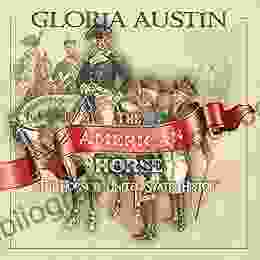
 Ibrahim BlairThe American Horse Gloria Austin: A Trailblazing Spirit on and Off the Track
Ibrahim BlairThe American Horse Gloria Austin: A Trailblazing Spirit on and Off the Track Miguel NelsonFollow ·12k
Miguel NelsonFollow ·12k Dillon HayesFollow ·5k
Dillon HayesFollow ·5k Chase MorrisFollow ·7k
Chase MorrisFollow ·7k Tim ReedFollow ·11.3k
Tim ReedFollow ·11.3k Matt ReedFollow ·5.8k
Matt ReedFollow ·5.8k Charles ReedFollow ·13.8k
Charles ReedFollow ·13.8k Pat MitchellFollow ·11.1k
Pat MitchellFollow ·11.1k Harold PowellFollow ·4.3k
Harold PowellFollow ·4.3k

 Finn Cox
Finn CoxEmpowering School-Based Professionals: A Comprehensive...
: The Role of School-Based Professionals in...
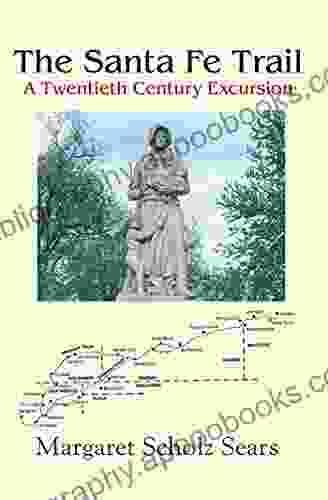
 F. Scott Fitzgerald
F. Scott FitzgeraldThe Santa Fe Trail Twentieth Century Excursion: A...
Get ready to embark on an...
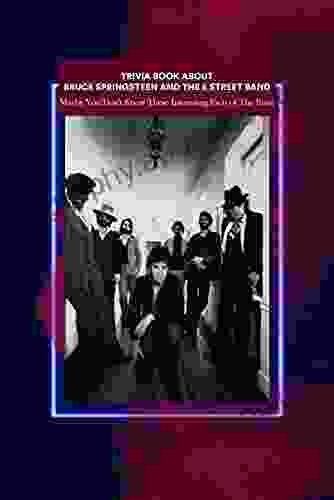
 Kendall Ward
Kendall WardThe Ultimate Trivia Guide to Bruce Springsteen and the...
Bruce Springsteen...
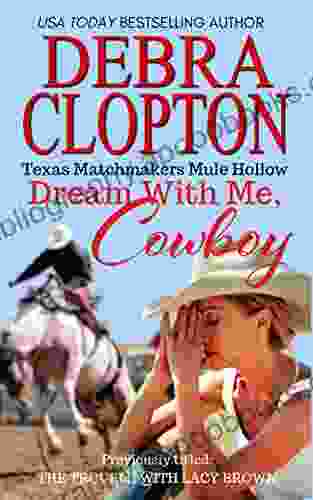
 Jedidiah Hayes
Jedidiah HayesThe Trouble with Lacy Brown: Texas Matchmakers - A...
Prepare to be swept...
5 out of 5
| Language | : | English |
| File size | : | 2206 KB |
| Text-to-Speech | : | Enabled |
| Enhanced typesetting | : | Enabled |
| Word Wise | : | Enabled |
| Print length | : | 134 pages |
| Screen Reader | : | Supported |
| Item Weight | : | 1.19 pounds |
| Dimensions | : | 8.98 x 6.85 x 0.94 inches |



